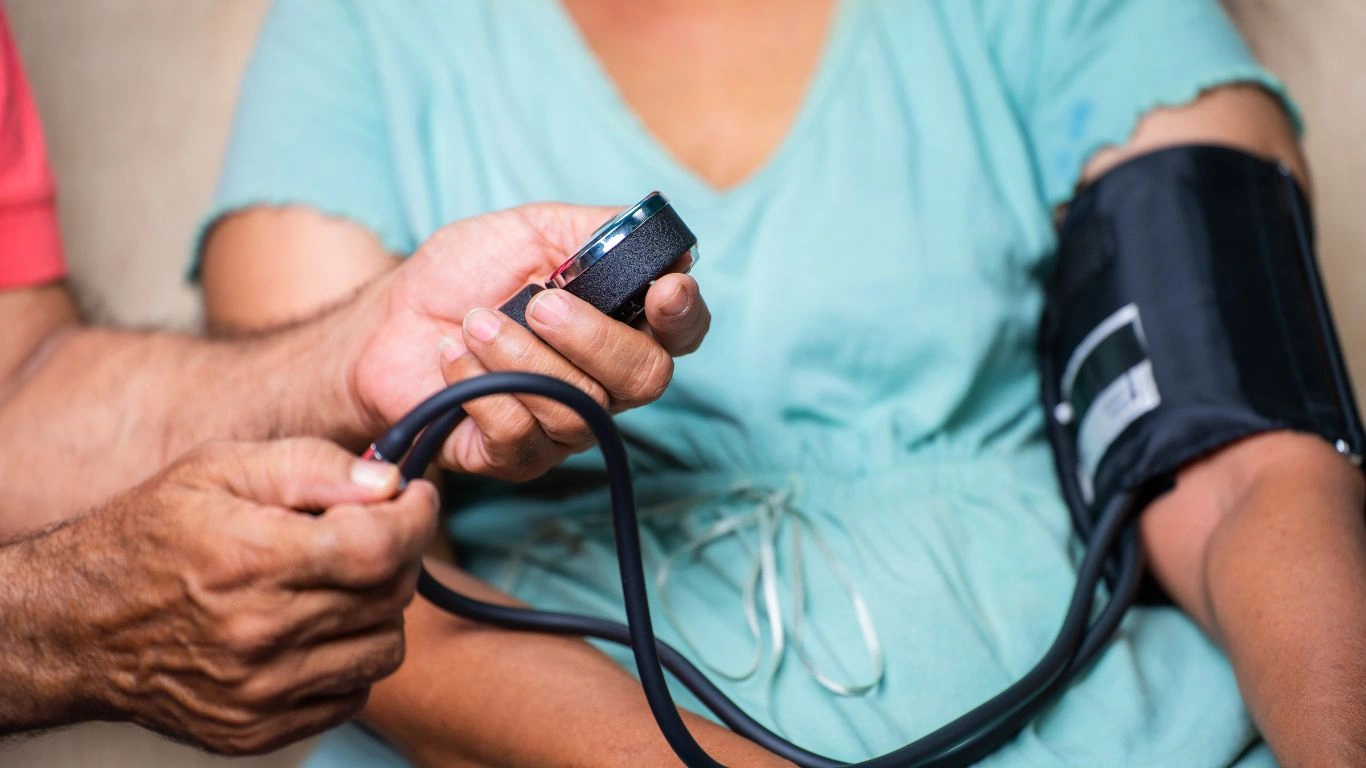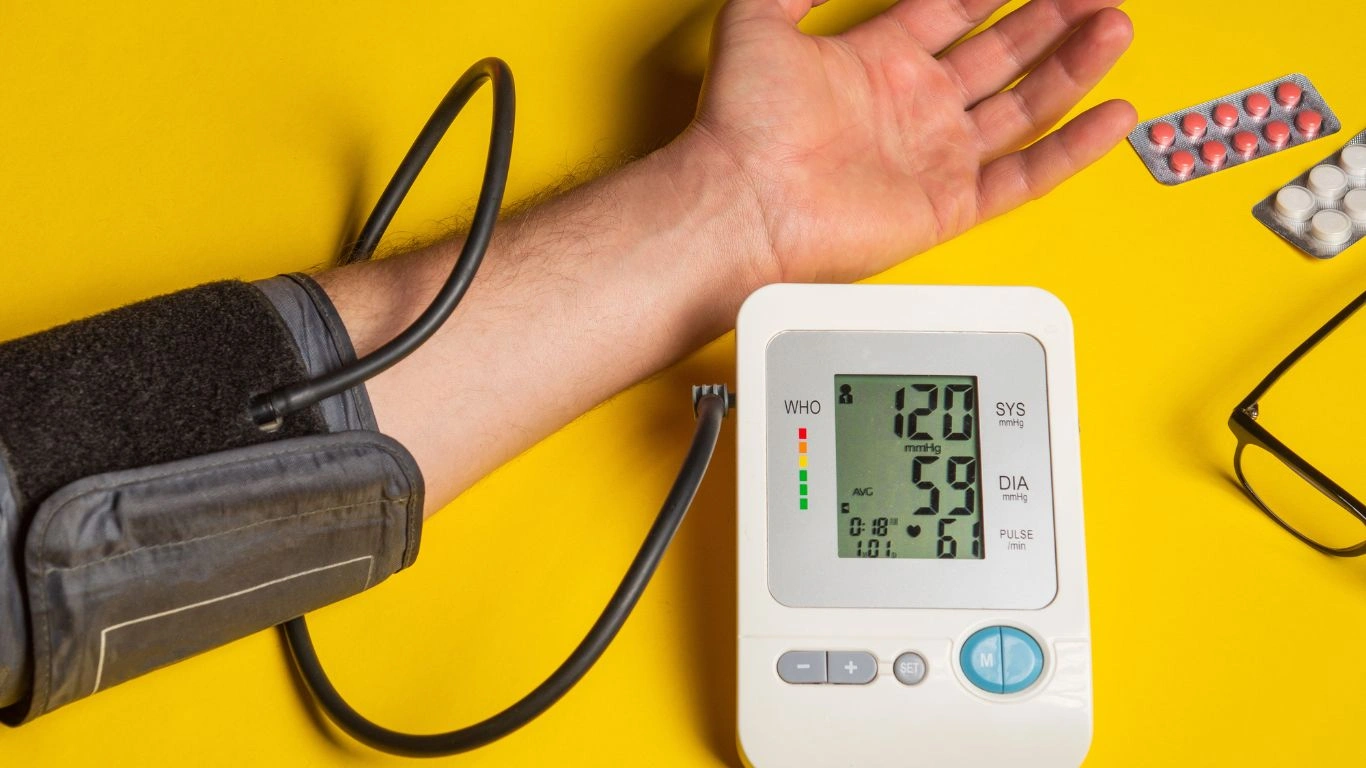How High Blood Pressure and Electrolyte Imbalance Affect Your Health
High blood pressure and electrolyte imbalance are two health concerns that often go hand in hand, and the connection between them is more important than many people realize. As a Hypertension expert, I’ve seen firsthand how small imbalances in your body’s electrolytes can contribute to high blood pressure or make it harder to manage.
Electrolytes like sodium, potassium, calcium, and magnesium play a crucial role in maintaining the balance of fluids and ensuring the proper functioning of cells, tissues, and organs. When these electrolytes become unbalanced, the impact on your cardiovascular health can be significant. In this post, we’ll dive into how electrolyte imbalance affects blood pressure and share practical tips to keep both in check.
Understanding High Blood Pressure and Its Causes

High blood pressure, also known as hypertension, is a condition where the force of blood against the walls of your arteries is consistently too high. This can lead to serious health problems over time, including heart disease, stroke, and kidney damage. Blood pressure is measured in two numbers: systolic (the top number), which measures the pressure in your arteries when your heart beats, and diastolic (the bottom number), which measures the pressure when your heart is at rest between beats. A reading of 130/80 mmHg or higher is typically considered high blood pressure.
There are two main types of hypertension: primary (or essential) and secondary. Primary hypertension doesn’t have a specific cause, but it can develop over time due to factors like age, lifestyle, and family history. Secondary hypertension, on the other hand, is often caused by an underlying health condition, such as kidney disease, sleep apnea, or thyroid issues.
The Role of Electrolytes in Blood Pressure Regulation

Electrolytes are minerals that carry an electric charge and are vital for many bodily functions, including the regulation of blood pressure. Sodium, potassium, calcium, and magnesium are the most important electrolytes when it comes to controlling blood pressure. They help to balance the fluids in your body and ensure that your heart, muscles, and nervous system are working properly. Here’s how each of these electrolytes can impact your blood pressure:
- Sodium: Sodium plays a significant role in maintaining fluid balance. However, when there’s too much sodium in the body, it can cause your body to retain water, increasing the volume of blood circulating through your blood vessels, which raises blood pressure. That’s why reducing sodium intake is often one of the first recommendations for managing hypertension.
- Potassium: Potassium helps to counteract the effects of sodium by helping your body excrete excess sodium through urine. It also helps relax blood vessel walls, which can lower blood pressure. Eating potassium-rich foods like bananas, spinach, and sweet potatoes can be an effective way to support healthy blood pressure levels.
- Calcium: Calcium helps blood vessels tighten and relax as needed, which helps control blood pressure. Some studies have suggested that calcium supplementation can have a mild blood pressure-lowering effect, especially in people who have low calcium levels.
- Magnesium: Magnesium is another important electrolyte that helps regulate blood pressure by relaxing blood vessels and improving blood flow. Low magnesium levels have been associated with higher blood pressure, so maintaining adequate magnesium intake can be helpful for hypertension management.
How Electrolyte Imbalance Affects Blood Pressure

An imbalance in your body’s electrolytes can lead to significant changes in your blood pressure. For example, a high sodium-to-potassium ratio can increase your risk of developing hypertension. This imbalance can lead to fluid retention, constricted blood vessels, and higher pressure on the arteries. Conversely, low potassium or magnesium levels can make it harder for your blood vessels to relax, which can contribute to high blood pressure as well.
But it’s not just the direct impact of these minerals that matters. An electrolyte imbalance often indicates an underlying issue, such as kidney dysfunction or dehydration, both of which can also affect blood pressure regulation. In my experience, I’ve seen many patients who struggle with hypertension due to chronic dehydration or a poor diet lacking essential electrolytes. It’s a reminder that good hydration and proper nutrition are key components of blood pressure management.
Common Causes of Electrolyte Imbalance
There are several reasons why electrolyte imbalances may occur, and understanding these can help prevent or manage the condition. Some of the most common causes include:
- Poor Diet: A diet high in processed foods, salt, and low in fruits and vegetables can lead to electrolyte imbalances. The body may not get enough potassium, magnesium, or calcium, all of which are vital for blood pressure regulation.
- Dehydration: When you’re dehydrated, your body may lose important electrolytes through sweat or urine. Dehydration can also reduce blood volume, making your heart work harder to pump blood, leading to an increase in blood pressure.
- Medications: Certain medications, such as diuretics (often prescribed for high blood pressure), can cause the body to lose electrolytes. If you’re on diuretics or other medications, it’s important to monitor your electrolyte levels regularly.
- Kidney Problems: Your kidneys play a major role in regulating electrolyte balance. If you have kidney disease or any condition that affects kidney function, your electrolytes may become unbalanced, potentially leading to high blood pressure.
- Excessive Alcohol or Caffeine Consumption: Drinking too much alcohol or caffeinated beverages can lead to dehydration and disrupt electrolyte levels, making blood pressure harder to manage.
Signs of Electrolyte Imbalance to Watch For
Electrolyte imbalances can sometimes be difficult to spot, especially when blood pressure is the primary concern. However, there are a few signs you can watch for:
- Fatigue or weakness
- Muscle cramps or spasms
- Headaches or dizziness
- Irregular heartbeat
- Frequent urination or dark-colored urine
- Nausea or vomiting
If you notice any of these symptoms, it’s essential to get checked out by a healthcare provider. Sometimes, a simple blood test can reveal if you have an electrolyte imbalance, and from there, you can work on correcting it to improve your blood pressure levels.
How to Correct Electrolyte Imbalances to Support Healthy Blood Pressure

Now that we understand how important electrolytes are for regulating blood pressure, the next step is figuring out how to correct any imbalances. This process isn’t always as simple as taking a supplement – in fact, it often starts with what you’re eating (or not eating) and how hydrated you are. From personal experience, I’ve seen countless individuals benefit from making small but consistent changes to their diet and hydration habits. Let’s dive into some practical tips to help restore your electrolyte balance and keep your blood pressure on track.
Hydration: The Foundation of Healthy Electrolytes
Staying hydrated is one of the most basic yet effective ways to keep your electrolytes in check. Electrolytes like sodium and potassium need water to function properly, and dehydration can throw everything off balance. I’ve had many patients come to me with high blood pressure complaints, only to find out they were not drinking nearly enough water throughout the day. Simple hydration can make a big difference in blood pressure regulation.
How much water should you drink? Well, it depends on your body size, activity level, and climate, but a general guideline is to drink at least 8 cups (64 ounces) of water a day. If you’re exercising or it’s especially hot outside, you’ll need more. When you sweat, you lose electrolytes too, so it’s essential to replace them as well. For those of us with high blood pressure concerns, staying hydrated and replacing lost electrolytes can be a game-changer for managing hypertension.
Boosting Potassium Intake
Potassium is one of the key electrolytes that helps regulate blood pressure. When potassium levels are low, sodium can wreak havoc on your blood pressure. The good news is that potassium is abundant in many delicious and nutritious foods. As a rule of thumb, if you’re trying to boost your potassium intake, focus on fruits and vegetables. Here’s a list of some potassium-rich foods that you might want to add to your diet:
- Bananas: A classic potassium powerhouse. I always tell my patients to keep a banana or two on hand for a quick, healthy snack.
- Sweet Potatoes: Not only are they high in potassium, but they’re also packed with fiber and vitamin A, making them a great addition to any meal.
- Spinach: Leafy greens like spinach are another fantastic source of potassium, plus they offer a healthy dose of magnesium, which is also vital for blood pressure.
- Avocados: This creamy fruit is not only a great source of potassium but also healthy fats, making it a perfect addition to salads or smoothies.
- Tomatoes: Whether in sauce or fresh form, tomatoes provide potassium while adding flavor to a variety of dishes.
It’s easy to include these potassium-rich foods in your meals, and they’ll work wonders for balancing your electrolytes and improving blood pressure over time.
The Importance of Magnesium and Calcium
Magnesium and calcium also play an essential role in keeping your blood pressure stable. Magnesium helps relax your blood vessels, allowing blood to flow more easily, while calcium helps control the contraction and relaxation of your blood vessel muscles. Both of these minerals are vital in maintaining healthy blood pressure levels.
Magnesium-rich foods like almonds, seeds, and leafy greens should be added to your daily routine. Personally, I’ve recommended magnesium supplements to many of my patients who have been deficient, and the results can be noticeable in terms of both improved energy levels and better blood pressure control.
Calcium, on the other hand, is often associated with bone health, but it’s also crucial for blood pressure regulation. Dairy products like milk, yogurt, and cheese are rich sources of calcium, but if you’re lactose intolerant or prefer plant-based options, consider alternatives like fortified almond or soy milk, as well as leafy greens like kale and bok choy.
Foods to Avoid: Reducing Sodium and Processed Foods

While focusing on the right foods is important, it’s equally essential to reduce or avoid certain foods that can contribute to electrolyte imbalances and raise blood pressure. The main culprit is, of course, sodium. Sodium can increase fluid retention and constrict blood vessels, both of which elevate blood pressure. In fact, reducing sodium intake is often one of the first recommendations I give to my patients struggling with hypertension.
Processed and packaged foods are often loaded with sodium, even in foods you wouldn’t expect. That’s why it’s important to check food labels for sodium content and avoid or limit foods like canned soups, fast food, salty snacks, and deli meats. While it’s not always easy to cut back on sodium, I find that making small changes, such as cooking more meals at home, can have a huge impact on both electrolyte balance and blood pressure management.
Magnesium and Calcium Supplements: Do You Need Them?
Some people find it difficult to get enough magnesium or calcium from food alone. In those cases, supplements might be a helpful addition. However, before starting any supplementation, I always recommend talking to a healthcare provider first. Too much magnesium or calcium can lead to other health issues, like kidney problems or digestive issues, so it’s crucial to get the right dosage.
If you’re taking medications, especially diuretics, that deplete electrolytes, you might need a supplement to help replenish magnesium, potassium, or calcium. But as with any supplement, I urge patients to not rely solely on pills to correct an imbalance. Real food is always the best way to get the nutrients your body needs. Supplements should just be that – a supplement to a healthy, balanced diet.
Monitoring Your Electrolyte Levels

One of the best ways to stay on top of your electrolyte balance is to have regular check-ups with your healthcare provider. Simple blood tests can help identify any deficiencies or imbalances. If you’re concerned about your electrolytes, don’t hesitate to ask for a blood test. Many patients are surprised to learn that their blood pressure issues are often tied to electrolyte imbalances, which can be easily addressed once identified.
In addition to professional tests, you can also monitor your own body’s signals. If you’re feeling fatigued, experiencing muscle cramps, or noticing other signs of imbalance, it’s time to pay closer attention to your diet and hydration. Small changes can lead to big improvements when it comes to blood pressure and overall health.
Maintaining Long-Term Electrolyte Balance for Blood Pressure Health

As we wrap up this conversation about high blood pressure and electrolyte imbalance, I want to emphasize that maintaining a healthy electrolyte balance is not a one-time fix. It’s an ongoing process that requires attention to your diet, hydration, and lifestyle choices. Over the years, I’ve seen many patients improve their blood pressure by consistently applying the principles we’ve discussed—hydration, balanced nutrition, and regular monitoring. The key takeaway here is that blood pressure isn’t just about managing a single number; it’s about cultivating a healthy lifestyle that supports overall well-being, including keeping your electrolytes in check.
Lifestyle Changes for Long-Term Blood Pressure Control
While diet and hydration are crucial, there are several other lifestyle changes that can support long-term blood pressure management. I’ve worked with patients who, despite taking medication, still struggled with high blood pressure until they made some of these adjustments. Sometimes, it’s the little things that make a big difference.
- Exercise Regularly: Physical activity is one of the most effective ways to keep your blood pressure in check. Exercise helps improve circulation, reduces stress, and can help maintain a healthy weight—all of which are important for preventing and managing hypertension. Even something as simple as walking for 30 minutes a day can have a profound effect on your blood pressure over time.
- Reduce Stress: Chronic stress is a silent killer when it comes to blood pressure. It’s so easy to get caught up in the hustle and bustle of life, but if you don’t make time to relax, it can negatively affect your health. Meditation, yoga, deep breathing exercises, or even a hobby you enjoy can help lower your stress levels. Personally, I’ve seen clients who’ve greatly benefited from just adding 10 minutes of daily relaxation to their routine.
- Sleep Well: Poor sleep can contribute to high blood pressure, so aim for 7-9 hours of quality sleep each night. Sleep allows your body to repair itself, and it helps keep your hormone levels, including those related to stress, in balance. If you’re having trouble sleeping, consider adjusting your bedtime routine or seeking advice from a healthcare professional.
- Limit Alcohol and Caffeine: Excessive consumption of alcohol and caffeine can lead to dehydration and disrupt your electrolyte balance, both of which can affect blood pressure. Moderation is key, and I often suggest limiting these beverages, especially if you’re already at risk for hypertension.
Making these lifestyle changes may take time, but they are incredibly important for long-term blood pressure control. The goal is not to focus solely on numbers but to foster habits that keep your body functioning optimally, including maintaining a healthy balance of electrolytes.
Tracking Your Blood Pressure and Electrolyte Balance

Once you’ve implemented some of the changes we’ve discussed, the next step is to track your progress. Regularly checking your blood pressure at home is an easy and effective way to keep tabs on how well your efforts are working. Home blood pressure monitors are widely available and relatively affordable, so there’s no reason not to take advantage of this tool. I recommend checking your blood pressure in the morning before you’ve had anything to eat or drink, and then again in the evening, after relaxing for a few minutes.
If you’re monitoring your blood pressure regularly, you’ll have a better understanding of how your lifestyle changes are affecting it. If your readings are still high, it might be worth revisiting your diet, hydration, and exercise routine—or even seeking further medical advice. Don’t be discouraged by setbacks. It’s all about making gradual improvements and staying consistent with your efforts.
Know When to Seek Professional Help
While lifestyle changes are effective for most people, sometimes it’s necessary to seek additional help from a healthcare provider. If your blood pressure remains consistently high, or if you’re experiencing symptoms like dizziness, headaches, or chest pain, it’s important to speak with your doctor right away. High blood pressure, especially when left untreated, can lead to serious complications like heart disease and stroke. And in some cases, electrolyte imbalances may require more targeted treatment, including medications or IV fluids.
As a hypertension expert, I always tell my patients that managing blood pressure is a collaborative process. Working with your healthcare provider to monitor your progress and make adjustments as needed will help you achieve better health outcomes. You’re not alone in this journey, and the right guidance can make a huge difference.
References and Resources for Further Reading
For more information on managing high blood pressure and understanding the role of electrolytes, I recommend checking out the following resources:
- Centers for Disease Control and Prevention – Blood Pressure Basics
- American Heart Association – High Blood Pressure
- Mayo Clinic – High Blood Pressure (Hypertension)
Disclaimer
While the information provided in this article is based on years of professional experience and trusted resources, it is not intended to replace medical advice. Always consult your doctor or a healthcare professional before making any changes to your diet, exercise routine, or treatment plan. This article is meant to provide general guidance for managing high blood pressure and electrolyte imbalances, but your individual health needs may differ.

Dr. Gwenna Aazee is a board-certified Internal Medicine Physician with a special focus on hypertension management, chronic disease prevention, and patient education. With years of experience in both clinical practice and medical writing, she’s passionate about turning evidence-based medicine into accessible, actionable advice. Through her work at Healthusias.com, Dr. Aazee empowers readers to take charge of their health with confidence and clarity. Off the clock, she enjoys deep dives into nutrition research, long walks with her rescue pup, and simplifying medical jargon one article at a time.







